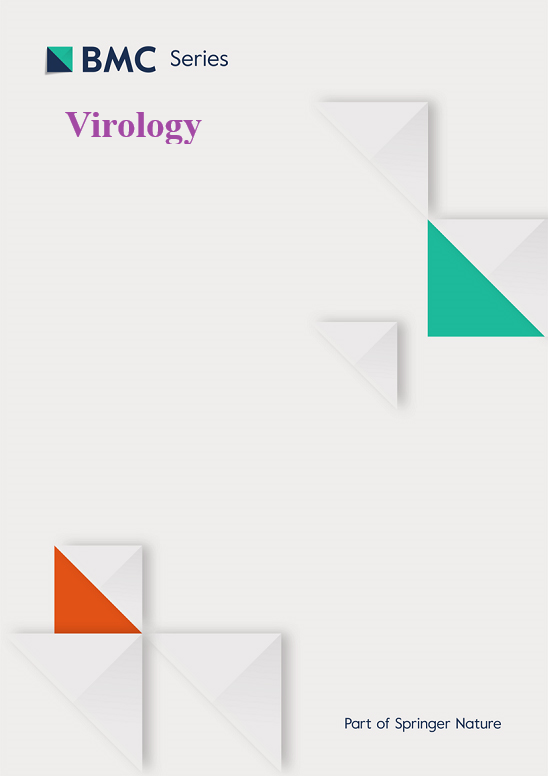抗炎剂35通过抑制p65的核易位来减少ASFV复制
IF 2.4
3区 医学
Q3 VIROLOGY
引用次数: 0
摘要
非洲猪瘟是由非洲猪瘟病毒(ASFV)引起的一种高度传染性传染病。迄今为止,还没有安全有效的非洲猪瘟疫苗或治疗药物。在这项研究中,我们发现抗炎剂35 (A35)是ASFV复制的负调控因子。实时荧光定量PCR、血液吸附试验和Western blotting分析显示,A35在体外抑制ASFV基因组复制和结构蛋白表达。进一步研究表明,A35可抑制TNF-α或asfv触发的NF-κB信号通路。报告者实验显示A35抑制p65触发的NF-κB信号通路。机制研究发现A35可以抑制p65的核易位。此外,p65的过表达增强了ASFV的复制,而p65的敲低则具有相反的作用。本研究首次揭示了A35通过靶向NF-κB信号转导发挥抗asfv作用,为基于天然产物结构优化开发新型抗asfv药物提供了理论基础和候选化合物。本文章由计算机程序翻译,如有差异,请以英文原文为准。
Anti-inflammatory agent 35 reduces ASFV replication by suppressing the nuclear translocation of p65
African swine fever (ASF), caused by the African swine fever virus (ASFV), is a highly contagious infectious disease. To date, no safe and effective vaccine or therapeutic drug is available for ASFV. In this study, we identified Anti-inflammatory agent 35 (A35) as a negative regulator of ASFV replication. Real-time quantitative PCR, hemadsorption assay, and Western blotting analyses revealed that A35 inhibits ASFV genome replication and structural protein expression in vitro. Further studies demonstrated that A35 suppresses TNF-α or ASFV-triggered NF-κB signaling pathway. Reporter assays showed that A35 inhibited p65-triggered NF-κB signaling pathway. Mechanistic studies have found that A35 can inhibit the nuclear translocation of p65. Additionally, overexpression of p65 enhanced ASFV replication, whereas knockdown of p65 had opposite effects. This study reveals, for the first time, that A35 exerts its anti-ASFV effects by targeting NF-κB signal transduction, providing a theoretical basis and candidate compound for the development of novel anti-ASFV agents based on the structural optimization of natural products.
求助全文
通过发布文献求助,成功后即可免费获取论文全文。
去求助
来源期刊

Virology
医学-病毒学
CiteScore
6.00
自引率
0.00%
发文量
157
审稿时长
50 days
期刊介绍:
Launched in 1955, Virology is a broad and inclusive journal that welcomes submissions on all aspects of virology including plant, animal, microbial and human viruses. The journal publishes basic research as well as pre-clinical and clinical studies of vaccines, anti-viral drugs and their development, anti-viral therapies, and computational studies of virus infections. Any submission that is of broad interest to the community of virologists/vaccinologists and reporting scientifically accurate and valuable research will be considered for publication, including negative findings and multidisciplinary work.Virology is open to reviews, research manuscripts, short communication, registered reports as well as follow-up manuscripts.
 求助内容:
求助内容: 应助结果提醒方式:
应助结果提醒方式:


